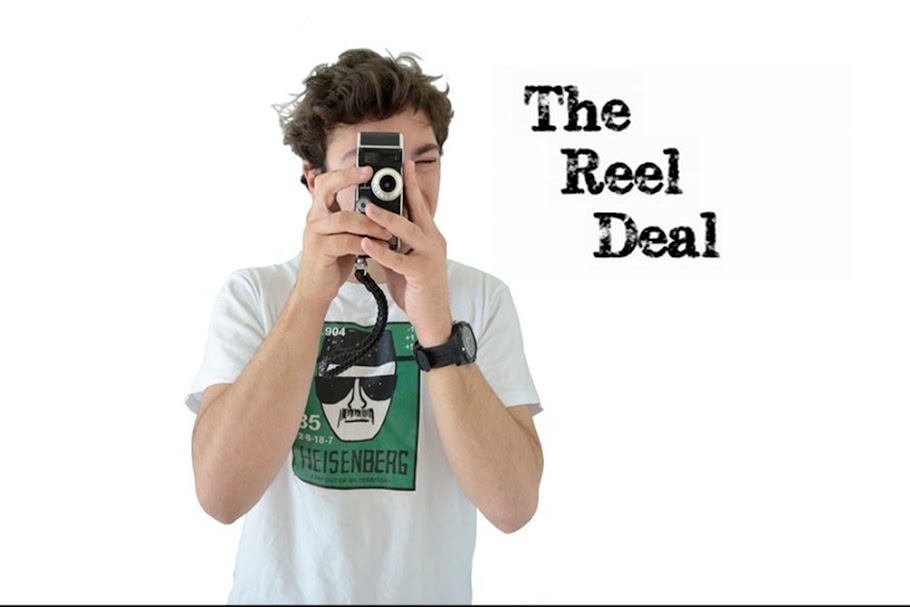 Remember those people that always said that you should never be the hero? They never told you why: because you might get knifed repeatedly before being mixed up with a bazooka and some samurai swords. Thank you for that valuable lesson, "Kick-Ass."
Remember those people that always said that you should never be the hero? They never told you why: because you might get knifed repeatedly before being mixed up with a bazooka and some samurai swords. Thank you for that valuable lesson, "Kick-Ass." All joking aside, "Kick-Ass" is a grand new addition to a genre of meta satire where the story becomes both satire and the subject in which it is actually satirizing (on purpose, of course).
The subject being satirized in "Kick-Ass" is a hybrid of the worlds of both comic books and movies. In order to dive into this world, "Kick-Ass" uses Dave Lizewski (Aaron Johnson). Dave is the archetypal comic book hero pre-transformation: he's a nerdy teenage outcast with girl troubles. Dave escapes his miserable, almost meaningless existence through an extreme comic book obsession.
Dave's obsession goes a little too far when he believes being a hero is as easy as putting on a costume, so he sets out to rid the streets of crime. Despite becoming a pop culture phenomenon, his super hero name is Kick-Ass not because he wins every fight but rather because he always seems to get beaten to a pulp.
"Kick-Ass" has what is almost two interwoven plots. The two plots serve as the two separate films "Kick-Ass" strives to be: a comic book movie, and a comic book satire. Dave's transformation into Kick-Ass serves most of the film's satirical moments. These moments serve to tell us that the great heroes such as Spider-Man, Superman, and Batman were kept flat on the page for a reason. These heroes served as fantasies for a reason. That reason is that they're not supposed to exist in reality.

There is another part of "Kick-Ass" that always remains funny, yet also tries to be like a true comic book. The film gives us the dynamic duo of the young, foul-mouthed, and very skilled Hit-Girl (Chloe Moretz) and her weapon-loving father Big Daddy (Nicolas Cage). Wherever they fight crime, they leave an extremely gory trail behind.
"Kick-Ass" has generated a lot of controversy for its sometimes less-than-serious look at ultra violence. To simply dismiss it as a product of violence-loving culture would be to totally miss the point. "Kick-Ass" comments on a society enamored by superheroes and explosions by in a way, becoming a very product of it as well. For example, Hit-Girl's shocking fighting techniques might produce laughter. This isn't because the act of murder is supposed to be funny but rather because these moves are all carried out by such a young child. One of the most important rules of comedy is breaking away from the expected. Then again, the often humorous view shows how little the characters understand reality.
Not all of the violence in "Kick-Ass" is pure humor. Director Matthew Vaughn has a Tarantinoesque ability to balance out over-the-top violence with much more realistic (and even dramatic) violence. Nobody gets injured and then heals instantaneously. Vaughn never neglects to remind the audience that in the end, these are just a bunch of inexperienced kids fighting people with guns.

"Kick-Ass" is supported by a flawless cast. Johnson creates a neurotic persona so awkward that it manages to rival the reputation for awkwardness created by co-star Christopher Mintz-Plasse. It was nice to see Nic Cage actually acting for once, or better yet actually playing a character fine-tuned to his own personality. He's had too long of a streak playing characters abusing women while wearing a bear costume.
Of all the cast, the biggest standout was the most inexperienced actress. Moretz handled such a gutsy role with such gusto. She gave off the sort of ease and believability that only a pro could ever pull off. Despite having such a small role, Moretz turns Hit-Girl into the funniest and most memorable character of the film. She's even worthy enough of her own spinoff.
The reason that "Kick-Ass" is my favorite film so far this year is because of how courageous it truly is. In this day, it's hard to make a movie that truly feels daring, that feels as if societal norms were broken in order to make it. "Kick-Ass" is that rare film that seems like a shock that anyone ever produced it. It contains violence that is at times uncomfortably gruesome and at other times uncomfortably funny. It even uses a four-letter word that is still taboo to say.
Yet, the film is never shocking for the sake of shock value. It is shocking because it earns the right to be shocking. It's shocking because parts of it feel like the kind of story you'd hear on the local news at 11, and then later watch it become a YouTube phenomenon. It's daring in both its hardcore violence and its storytelling. Vaughn carefully balances both realism and jet pack absurdity into one film. It's stylish and ridiculous at the same time.
In a world where people can watch movies on laptops and phones, "Kick-Ass" feels like the kind of film that was made to be see in a theater. Its unique story is worthy of a variety of responses. One scene can make some happy, and others angry. It's also shot well, and contains some humor that works best in collectivized laughter. "Kick-Ass" has something to say and something to give. It's both a disturbing look at the world, and a hilarious comic book fantasy. Genius couldn't have come in a more stylish, more fascinating package.






